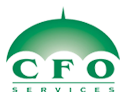The Guinness Enterprise Centre, a startup hub nestled in the old stables of Dublin’s landmark brewery, has just gotten a €10m makeover.
Thanks to money from State agencies including Enterprise Ireland, a loan from the Ireland Strategic Investment Fund and help from Guinness owner Diageo, two stories have been added to create a 100,000-square-foot base that can now accommodate 220 co-working companies, up from 160.
A further €1m investment will create an estimated 3,000 jobs over five years and generate €77m in tax revenues, according to figures from the Guinness Enterprise Centre (GEC).
GEC manager Eamonn Sayers said he hopes the larger footprint will allow startup companies to stay longer in the space, particularly post-Covid. “We’ve always had a phenomenal community here. We need to rebuild all that, so as much as we’ve got a beautiful, brand spanking new building, it’s not about the building. It’s about the people.”
The GEC partners with business hubs around the country, allowing firms from outside the capital to access temporary office space in Dublin. It also has links with 30 of the world’s top business schools and runs a special ‘Innovate’ programme for female entrepreneurs.
Sonya Neary, co-founder of healthcare portal Wellola, who was part of ‘Innovate’, said she hopes to stay in the space even as her company expands. “I don’t know if I would leave. It’s the ambience. There are companies that are either starting out or have been here for 20 years. Amongst those companies there’s huge experience and we kind of lean on that a lot. You really support one another,” she said. Wellola is currently at the tail end of a €3m funding round that Ms Neary hopes will fund her expansion into Europe.
The GEC has also supported cyber security firm AdaptiveMobile Security, which was acquired for €45m this year, and cryptocurrency start-up Circle, which was recently valued at almost $3bn (€2.6bn). Athleisure brand Peachylean, gaming studio Black Shamrock and educational start-up Examfly are former or current residents.
“You need to be in a start-up space if you’re a start-up company,” said Mr Sayers. “We’re happy to sit down and have the coffees and be the shoulder – it’s not a shoulder to cry on, it’s a shoulder for support.”
The building has space for medical or food firms to build wet labs or clean rooms, with 15 frontline companies having used the space throughout the pandemic, he added. Around 80pc of the GEC’s space is fully committed and it expects to be at full capacity by early next year.
Irish Independent, November 2021

